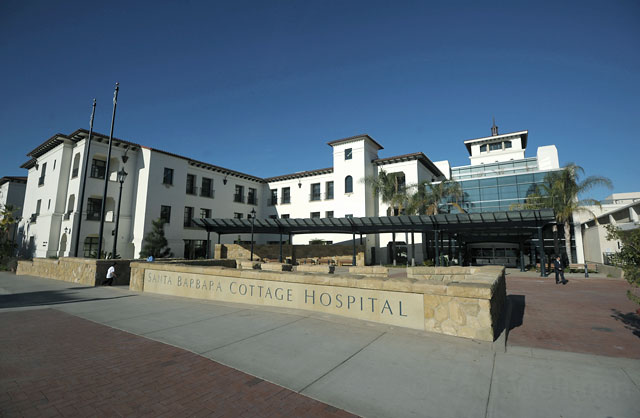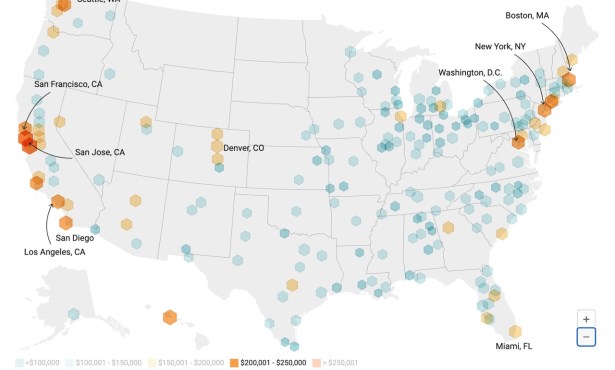Jury Rejects Anti-Trust Conspiracy Claim Against Cottage
Spine Surgeon Gets No Traction After-Seven Week Trial

A Santa Barbara jury of 11 women and one man rejected charges filed by Santa Barbara spine surgeon Dr. Alan Moelleken that Cottage Hospital had engaged in a monopolistic conspiracy with a private partnership of four neurosurgeons to exclude Moelleken from the on-call medical panels that provide emergency trauma care. The verdict was announced after a little more than a day of deliberations. The trial itself took seven weeks. Moelleken claimed he’d lost $5 million worth of business over the past five years.
Moelleken, an orthopedic surgeon who specializes in performing spinal surgery, claimed he’d been trying since 1996 to be put on Cottage Hospital’s on-call panel that treats people with emergency spine trauma. Moelleken and his attorneys said he’d been unfairly excluded by a “country club” conspiracy to keep him out, hatched by hospital administrators and the four doctors making up the Santa Barbara Neurosurgery Associates: Dr. Thomas Jones, Dr. Scott Conner, Dr. Richard Chung, and Dr. Alois Zauner.

For years, these doctors constituted Cottage’s on-call emergency and trauma panels for brain and spinal injuries. When in late 2008 Cottage administrators expressed a theoretical openness to exploring the possibility that Moelleken might be admitted to the panel, Moelleken contended that Dr. Jones sent out an e-mail threatening to withhold services outright or to re-negotiate the terms and conditions of the partnership’s relationship with Cottage. After that, Moelleken contended Cottage administrators folded and the status quo was allowed to prevail. This, he insisted, was unfair to him, to other orthopedic surgeons, and to patients. Moelleken’s attorneys likened his situation to an attorney at the apex of his career being denied the ability to practice before the Supreme Court by a cabal of other lawyers who had a lock on that market.
Barry Cappello, the attorney representing the neuro-surgeons — and Jeffrey LeVee, who represented Cottage Hospital — emphatically denied that Jones’s e-mail constituted such a threat and presented a host of hospital administrators — even some who’d expressed a willingness to consider Moelleken as a panelist — to testify to that they never considered it a threat. They argued that quality of patient care trumped fairness as a consideration in constituting the on-call panels, and presented witnesses who testified that Moelleken — when given a chance to serve on the orthopedic on-call panel in 2000 — had proven unreliable. (Moelleken insisted claims of his unreliability have been greatly exaggerated and that patient care would be undermined by assigning a spinal specialist such as himself to fix broken bones.) Throughout the trial, LeVee presented witnesses who described how Cottage convened two independent panels of physicians to determine whether the current system should be changed to include him. Both unanimously agreed the status quo should prevail.
Cappello waged a vigorous counter attack on Moelleken, portraying him as a greedy, spiteful, bully intent on abusing the legal process to exact revenge against Cottage and the neurosurgeons because “they wouldn’t let him play quarterback.” Cappello noted that Moelleken makes about $11 million a year operating five one-stop-shop orthopedic clinics — and one surgical center — throughout the state that employs about 100 people. With theatrical flair, Cappello repeatedly expressed incredulity that anyone so obviously successful as Moelleken could claim they’d been damage by an anti-trust conspiracy. He likened Moelleken’s lawsuit against the neuro-surgeons to McDonald’s (hypothetically) suing the Hamburger Habit, and all but accused Moelleken of abusing the legal process.
The jurors had six specific claims to deliberate over. The first two asked whether Cottage had engaged in behavior injurious to Moelleken, and nine of the jurors concluded it hadn’t. It being a civil trial, Moelleken would have needed nine jurors to find in his favor to prevail. As to the charges against the four neurosurgeons, nine voted against Moelleken with regard to Dr. Jones, ten with regard to Dr. Conner, 11 with regard to Chung, and 12 with regard to Zauner. (Zauner, who is not a partner and had been hired recently, testified he had no idea who Moelleken was until Moelleken sued him.)
Moelleken testified that it “got his goat” when Zauner — a stroke specialist who is not qualified to perform spinal surgery — was hired. Cappello seized upon the “goat” remark to argue Moelleken was motivated by personal animus in filing the complaint. Moelleken’s attorney David Kesselman said afterward that he and Moelleken were evaluating whether to appeal. He said the jurors he spoke to after the verdict was read said they believed Moelleken had a principled basis for filing his complaint, and re-affirmed his belief that the public would be better served if a highly qualified spine surgeon like Moelleken were to be on the emergency trauma panel.


